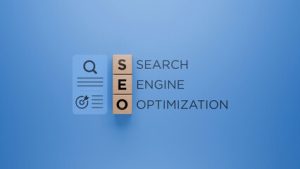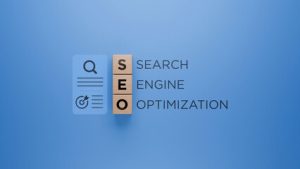Boise SEO Agency is an external partner that focuses on boosting your website’s organic search engine results. They help you draw in designated traffic to your website, resulting in more leads and sales.

When evaluating potential agencies, look for transparency in their pricing structures, strategies, and reporting. They should be clear and upfront about any challenges they anticipate and realistic about the outcomes.
An SEO agency specialises in helping your business appear higher on search engine results pages (SERPs) organically, without paid ads. Using a mix of technical skills, content strategies and data analysis, they optimize your website for better performance. They handle everything from on-page optimisation and site structure to keyword research, link building and reputation management.
Before any work can begin, your agency will set clear goals and objectives for your campaign based on your business needs. They’ll also conduct a thorough audit of your website, identifying any underlying issues that could be hindering SEO success. This includes a review of your website’s technical performance and accessibility, as well as a review of the on-page content to identify areas that require improvement or need restructuring to be SEO-friendly.
An excellent SEO agency will continually monitor your performance and make changes based on current trends and algorithm updates. They’ll also provide monthly reports that show the progress your website has made towards achieving its goal. This information will help you justify continuing SEO services, as well as demonstrate the return on your investment. Look for a transparent agency that provides clear pricing and details of what is included in their package. Hidden fees or vague service descriptions are red flags that should be avoided at all costs.
Keyword Research
A well-rounded SEO strategy begins with thorough keyword research. Top agencies use specialized tools to identify keywords that are valuable and relevant to your business. This research also helps them identify search volume trends and emerging innovation areas.
Your SEO agency will use the data from their research to create a content creation plan and a list of priority pages. These priority pages are the ones that are most likely to drive traffic and conversions. This is important because it ensures that your content is aligned with the needs of your audience.
A top SEO agency will also look at your competitors’ websites to identify opportunities for improvement. They will analyze their keyword strategies, backlink profiles, and content to determine what is working and what isn’t. They will then use this information to improve your own site and outperform your competition.
A good SEO agency will also be able to identify and resolve any technical issues that may be hindering your website’s performance. This includes resolving errors that prevent search engines from crawling your website, fixing broken links, and improving page speed. They will also optimize your URL structure to make it easier for search engines to understand your site content. They will also provide you with detailed reports and updates on their progress. This clear communication is essential to building a strong relationship with your SEO agency.
On-Page Optimization
SEO involves a broad range of techniques, from keyword research to link building. But the bulk of on-page optimization concerns optimizing individual web pages for better visibility in search engines. This focuses on content and other elements directly within the page that the site owns or can control, such as page titles, meta tags, and headers.
Creating high-quality and authoritative content is the best on-page SEO strategy. That includes a strong title tag that incorporates your targeted keywords and accurately reflects the contents of the page. A great meta description also helps users understand what the page is about and improves click-through rates.
Internal linking is another essential on-page SEO technique. It can help search engines understand the structure of your website and determine how important each page is. It can also boost your ranking for a given query by signaling to search engines that other websites think highly of your content.
Finally, on-page SEO involves ensuring that your pages are up to date. This means adding new content and updating existing content to reflect new information, fresh perspectives, or changing search trends. It also entails auditing your pages regularly to ensure they are adhering to current SEO best practices. This can include using tools like Google Search Console and Ahrefs to identify indexing errors, broken links, and other technical issues that could be affecting your rankings.
Link Building
One of the most effective ways to drive organic traffic is through link building. However, it can be a difficult task to execute. If done incorrectly, it can have a negative impact on your search engine optimization performance. A good SEO agency will use a variety of strategies to prevent common mistakes and monitor progress. This includes creating high-quality content, conducting outreach and relationship building, analyzing competitor backlinks, and more.
While this may seem like a lot of work, a professional SEO agency will have the tools and experience to make it easier. In addition, they can help you identify potential opportunities to acquire links from reputable sources. This can include industry publications, ad networks, and other relevant websites. Ultimately, the goal is to improve your SEO performance by increasing the number of high-quality links to your website.
As the king of all digital marketing metrics, the importance of link building is hard to dispute. In fact, it is consistently ranked as one of the top ranking factors in various studies. As a result, it remains an important part of any digital marketing strategy. However, with the rise of AI-powered tools and dramatic changes to search engine algorithms, it’s crucial to stay up-to-date on the latest link-building trends. Otherwise, your business will be left behind.
Reputation Management
Reputation Management, or ORM, is a key aspect of SEO and a vital part of any digital marketing strategy. It involves strategically managing the results that appear when someone searches for a brand name or keywords. This includes maximizing positive content, pushing down negative results, and responding to reviews quickly. Reputation management is typically a separate service from SEO, but it can overlap with it in some cases.
Negative search engine results can make or break a company’s reputation and sales. When potential customers see these results, they may lose trust in the brand and turn to competitors. Reputation management techniques can help companies overcome negative perceptions and build lasting trust with their audience.
Reputation management includes everything from boosting positive reviews to creating location pages that list and display business locations. It also involves monitoring keywords and branded search terms to identify any new articles that might mention the brand. This helps to ensure that any critical or defamatory material is not getting a leg up on the competition. Additionally, it is important to respond to negative reviews quickly to show that the brand cares about its customers and wants to resolve any issues. By taking these steps, businesses can strengthen their online presence and stay competitive in a fast-changing digital landscape.
Technical Optimization
An SEO agency is a marketing consultancy that specializes in optimizing websites to rank higher on search engine results pages (SERPs). They use a combination of technical skills and content strategies to help businesses appear at the top of relevant search results, which can lead to more organic traffic and business growth.
SEO is a long-term strategy that requires constant monitoring and tweaking. An experienced SEO agency will have the tools and resources to ensure your website is always up-to-date with the latest search engine algorithm changes and best practices. They will also perform a full site audit to identify issues and prioritize fixes.
Technical optimization focuses on the behind-the-scenes aspects of a website that influence how search engines index and rank it. This includes improving a website’s speed and mobile responsiveness, as well as ensuring it is properly structured and categorized.
Technical SEO can also include ensuring that keywords are used correctly throughout a website, including the title tags and meta descriptions. It may also involve reworking existing content to ensure it is engaging and valuable to users. Lastly, it can also include adding relevant images to webpages, minimizing page load times, and using green or sustainable web practices (such as reducing redirects and reducing the amount of energy needed to load a website). This type of technical optimization is an ongoing process that can be done by a professional or done in-house by a digital marketing team.

